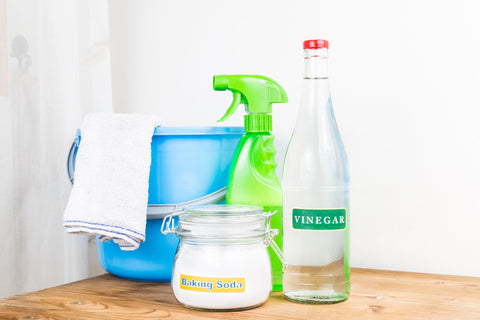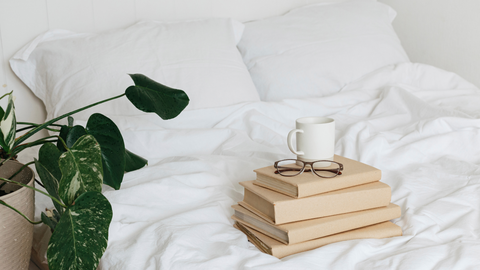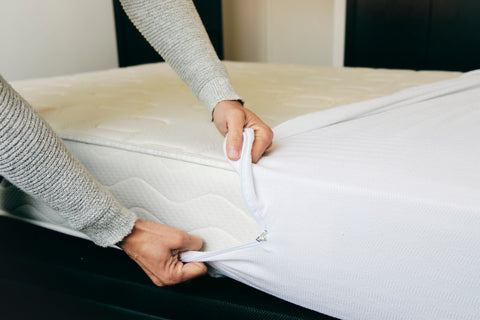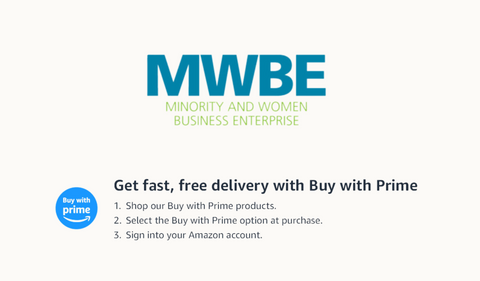In today's eco-conscious world, the shift towards healthier, safer household solutions has led to a remarkable rise in the popularity of non-toxic cleaning products. These environmentally friendly alternatives are not just kinder to the planet but also promise to safeguard the health of our families and pets.
But what exactly makes a cleaning product "non-toxic"? And why are more people choosing them over traditional cleaners? Join us as we explore the compelling reasons behind this green revolution and how making the switch can contribute to a cleaner, safer home environment.
Understanding Non-Toxic Cleaning: The Basics
Cleaning products containing harmful chemicals can contribute to indoor air pollution and have been linked to various health issues. 'Non-toxic' refers to products that don't contain any poisonous elements or health-deteriorating substances.
Opting for non-toxic options can ensure the air you breathe is clean, protect sensitive skin and avoid a host of long-term health hazards.
The Benefits of Choosing Non-Toxic
- Safer for Families and Pets: Non toxic cleaning products contain ingredients that are not hazardous, making them a safer option for homes with young children and pets.
- Environmental Protection: By choosing all-natural cleaning products, you contribute to reducing pollution and protecting wildlife, as these products are biodegradable and free from harmful chemicals that could leech into the soil and waterways.
- Health Benefits: Non-toxic cleaners can significantly lower the risk of developing allergies, asthma, and other respiratory issues often associated with synthetic fragrances and chemicals in traditional cleaning agents.
- Economic Advantage: Investing in non-toxic cleaning products can also lead to financial savings, as many of these products are concentrated and require lesser quantities per use, or they can be easily made at home with common, inexpensive ingredients.
The Toxic Ingredients to Eradicate
- Phthalates: Often hidden under the term "fragrance," phthalates are endocrine disruptors that can affect hormonal balance and reproductive health.
- Ammonia: A powerful irritant that can negatively impact respiratory health and is particularly dangerous for individuals with asthma or other lung conditions.
- Chlorine Bleach: While effective for
The Rise of Non-Toxic Alternatives
Pest Control: Traditional pest control methods often involve the use of harsh chemicals that can have detrimental effects on both human health and the environment. Our pest sprays can be used on mattress and chairs, as well as around people and pets, while toxic solutions cannot. Our sprays are safe to use everyday, and serve a huge benefit to young children and to people with respiratory health issues.
Pet Care: Our furry companions can also benefit from the use of non-toxic cleaning products. Traditional pet shampoos and cleaners often contain chemicals that can irritate their skin or be harmful if ingested. Non-toxic options, on the other hand, are gentler and safer for our pets.
Cleaning Solutions: Non-toxic cleaning products are becoming increasingly popular in the household cleaning aisle, with many brands offering a range of options for various surfaces and needs. These products often use non-toxic ingredients such as sodium lauryl sulfate, sodium chloride, sodium benzoate, citric acid, water, urea, potassium sorbate, alpha olefin sulfonate, fragrance to effectively clean without all the harsh chemicals.
Steam Machines: Steam cleaning machines have also gained popularity as a non-toxic cleaning option. These machines use hot water and steam to clean and disinfect surfaces, eliminating the need for chemical cleaners.
Bed Protection: Protect your bed with a bedbug-proof mattress cover, acting as an impenetrable barrier against these unwelcome intruders. It is also water-resistant, guarding against spills, stains, and unwanted liquids. Your mattress stays fresh, clean, and free from the wear and tear of daily life.
Making the Transition to Non-Toxic
- Educate Yourself: Start by researching and understanding the harmful effects of toxic ingredients found in many household products. Knowledge is power when it comes to making healthier choices.
- Read Labels Carefully: Always check the labels for harmful chemicals and opt for products with clear, non-toxic ingredient lists. If a product doesn't list its ingredients, it's best to choose another option.
- DIY Solutions: Consider making your own cleaning products. Simple ingredients like vinegar, baking soda, and lemon can be powerful cleaning agents without the health risks.
- Gradual Shift: Transition to non-toxic products gradually. Replace products one at a time as they run out, to ease the financial burden of switching.
- Utilize Technology: Take advantage of apps and websites that rate and review the toxicity of household products. This can help guide you in making informed decisions.
- Spread the Word: Share your knowledge and experiences with friends and family. Encouraging others to make the switch can compound the positive impact on health and the environment.
Non-Toxic Cleaning Your Space, Room by Room
- Kitchen: In the kitchen, switch to non-toxic dish soaps and surface cleaners. Baking soda and vinegar are excellent for scrubbing and sanitizing countertops, while lemon can add a fresh scent and additional antimicrobial properties.
- Bathroom: For the bathroom, non-toxic toilet bowl cleaners and mold removers can keep the space sparkling without the need for harsh chemicals. Essential oils can be used in DIY air fresheners to keep the area smelling fresh.
- Living Room: Opt for dusting or all-purpose sprays made from non-toxic cleaning solutions to keep furniture clean and polished. Use a steam cleaner instead of carpet shampoos to remove dirt and allergens from carpets and upholstery without chemical residue.
- Bedroom: Ensure a healthy sleeping environment by choosing non-toxic laundry detergents for bedding and pajamas. Non-toxic mattress sprays can help keep dust mites at bay, and hypoallergenic pillow and mattress covers offer additional protection.
- Children's Rooms and Play Areas: Use plant-based cleaners for toys and surfaces in children’s areas to avoid exposure to harmful chemicals. Homemade playdough and paint can make for safer play without sacrificing fun.
Pro Tips for Mastering Non-Toxic Cleaning
- Start Small: Embark on your non-toxic cleaning journey with small, manageable steps. Begin by replacing the most commonly used cleaners with non-toxic alternatives to gradually adapt to the new products without becoming overwhelmed.
- Invest in Quality Tools: High-quality microfiber cloths, durable scrub brushes, and refillable spray bottles can enhance the effectiveness of non-toxic cleaning products. These tools can also reduce waste and save money in the long run.
- Leverage Essential Oils: Essential oils are not just for fragrance; many have powerful cleaning and antibacterial properties. Oils such as tea tree, lavender, and eucalyptus can be added to homemade cleaners for an extra boost of cleaning power and a pleasant scent.
- Stay Organized: Keep your cleaning supplies well-organized and labeled. This not only makes the cleaning process more efficient but also ensures that all family members know which products are safe to use.
- Follow a Cleaning Schedule: Maintain a regular cleaning schedule to prevent buildup and reduce the overall time spent cleaning. Non-toxic products work best when used regularly, as they may not have the same immediate, heavy-duty impact as their toxic counterparts.
- Practice Preventative Cleaning: Address spills and stains immediately to prevent them from setting and becoming harder to clean. This approach is especially important with non-toxic products, which may require a bit more elbow grease for tough stains.
- Eco-Friendly Equipment: Consider investing in energy-efficient and eco-friendly cleaning equipment such as vacuum cleaners with HEPA filters, which can improve indoor air quality while cleaning.
- Spread the Knowledge: Educate friends and family about the benefits of non-toxic cleaning. Sharing recipes for homemade cleaners or gifting non-toxic products can help spread the movement for healthier homes and a healthier planet.
Bringing It All Together
The benefits of making the switch to non-toxic cleaning products are numerous, from safeguarding your health to doing your part for the environment. The key is to take it step by step, learning and experimenting as you go.
Whether you opt for non-toxic home remedies, discover brands dedicated to eco-friendly solutions, or enjoy the fulfillment of making your own products, your commitment to a non-toxic home will be rewarding.
About HygeaNatural
At Hygea Natural, our core mission is to enable individuals, businesses, and communities to adopt a more sustainable, safer, and healthier lifestyle through our range of non-toxic cleaning products. Recognizing the varied backgrounds and needs of our clientele, we proudly offer an extensive selection of both professional-grade and do-it-yourself cleaning solutions.
This variety ensures that regardless of whether you're a professional cleaner needing effective and safe products for your clients, or a parent looking for eco-friendly options for your home, Hygea Natural has something to suit your specific requirements.
For more information or to explore our full range of non-toxic cleaning products, do not hesitate to get in touch with our knowledgeable and friendly team.
Call Us: 315 660 3500
Email Us: info@hygeanatural.com
Your health, safety, and satisfaction are our top priorities. We look forward to assisting you in creating a cleaner, healthier living environment.




